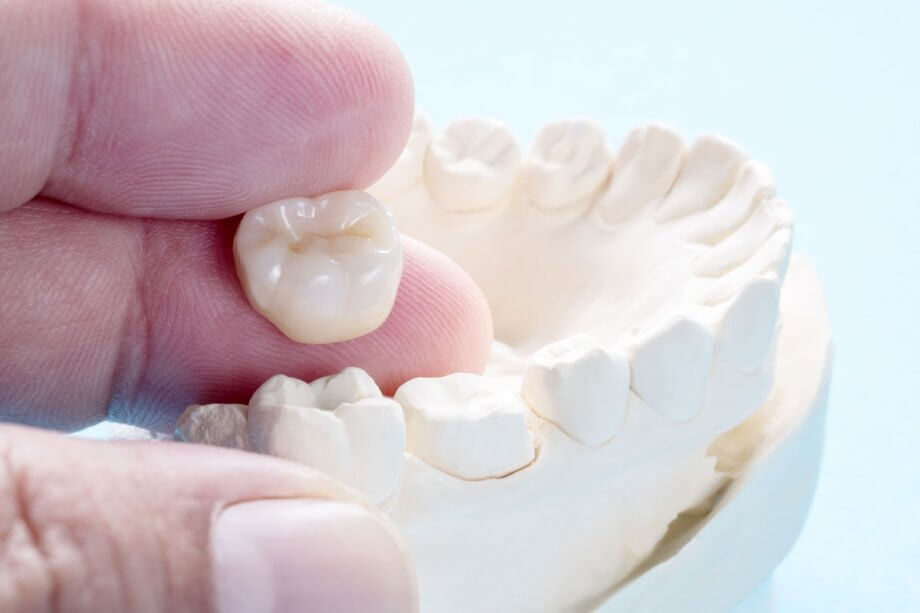After dental fillings, dental crowns are one of the most common restorative dental treatments we provide, but the uses for crowns go far beyond simply repairing a tooth with deep decay. We use crowns to protect a tooth after a root canal, to replace a tooth in conjunction with a dental implant, to hold bridges in place, to restore teeth that are damaged after an injury, and even sometimes to correct cosmetic imperfections. Below, we answer some of the most frequently asked questions patients have about the lifespan of dental crowns, including the all-important, “How long does a dental crown last?”
How long will my dental crown last?
The answer to this question depends on a number of factors. These include:
- The reason you need a crown.
- The location of your crown and how much wear it gets.
- The material you choose for your crown.
- Your oral hygiene habits and the condition of your teeth, gums, and jaw.
On average, a crown will last between five and 15 years, but it’s not uncommon to see crowns that last even longer than this. Brush and floss well, visit the dentist every six months for check-ups and dental cleanings, and avoid bad oral habits like biting ice or jaw clenching and your crown could last well over a decade.
Can a crown last a lifetime?
Yes, a high-quality, well-cared for dental crown may never need to be replaced, although this does depend on the age you get it. Even with exceptional oral hygiene habits, it would be unusual for someone who gets a crown in their teens to have it last until they’re in their 80s or 90s!
Can dental crowns be replaced?
Yes, crowns can be replaced. Unless the root of your tooth has been compromised or there is some other complication, we would replace a crown if something happens to it, rather than extracting your entire tooth.
How many times can you replace a crown?
A crown can be replaced as many times as needed, as long as there’s still a healthy tooth structure to attach it to.
Can a crown be removed and put back on?
Rarely a crown can be removed and then put back on; it depends on the condition of your crown and of your tooth. If, for example, your crown must be removed because a cavity has formed underneath it, you’ll need a new crown to replace it because the shape of the underlying tooth structure will have changed.
How do you know if a crown needs to be replaced?
If you notice that your bite no longer feels comfortable, particularly in the area around your crown, it may be a sign that it no longer fits correctly or that it has been damaged. Another common reason for crowns being replaced is when the tooth structure underneath has a cavity that needs to be treated. A crown that is painful or gum recession on the crowned tooth are other reasons for replacement.
What type of dental crown is most durable?
When it comes to durability, the winner is gold alloy. This might not be good news for you if you wanted a tooth-colored restoration, but don’t worry—today’s ceramic crowns are stronger than ever before! Still, if you need a crown on one of your back teeth and you have a habit of grinding your teeth or clenching your jaw, you might want to consider a gold alloy crown, especially if you’d like to avoid ever having to get it replaced.
Learn More About Dental Crowns
If you have questions about dental crowns, we’re here to help! Contact us today at 440-247-8641 to schedule an appointment for a consultation.

